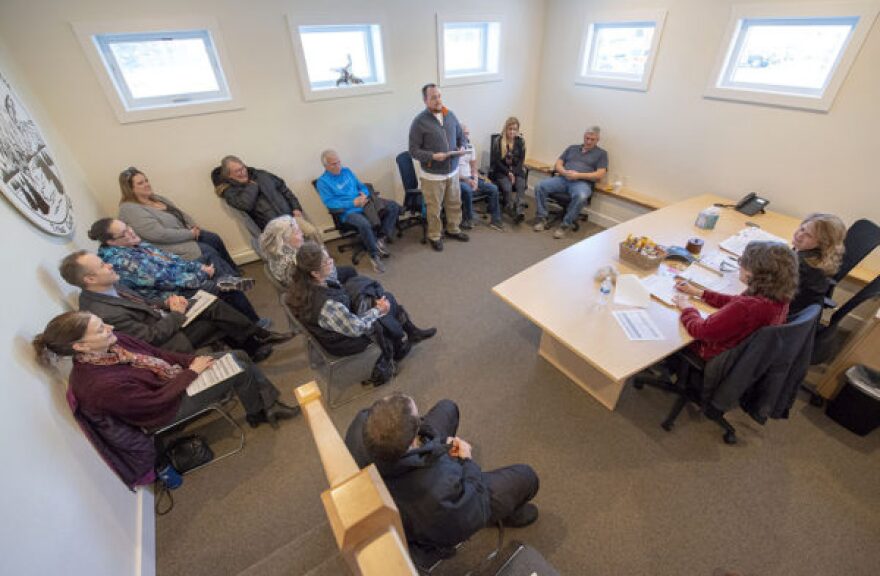It’s been almost two years since the Kenai’tize tribe’s Henu Community Wellness Court began taking cases. Now, a half dozen graduates have completed the program that’s designed to tackle substance abuse issues outside the criminal justice system.
Susan Wells is the Kenai’tze’s Chief Tribal Judge. She spoke about the program Wednesday at a meeting of the Kenai Chamber of Commerce. There are a lot of differences between this program and how a drug offender would be processed through state courts, all the way down to how the proceedings held in conjunction with state judges
“When she comes over to our court, she’s not wearing her black robe. We’re in street clothes. We’re sitting at a table...we have other visitors that are there, but we make sure we spend at least three minutes talking to each one individually, seeing how they’re doing, seeing if there’s anything we can do to help them, how their week’s going.”
The basic premise is to show people in the program that there’s a community behind them, invested in their effort to get sober and back on the right track. Through four phases, participants and the court’s members build trust and develop expectations, all alongside the state system.
Wellness 2(0:32)“We call the second phase the belonging phase, because they come to a point where not only we trust them and they trust us, (but) now you have to realize that you really belong. But it takes hard work to belong. If we get a good report on each one of the participants, when the judges are done talking to them, we say congratulations you had a great day and we all applaud. When they don’t get that applause, it really impacts them, so by the next week they really want to get back because they don’t want to disappoint.”
Parts of the program resemble other rehab protocols, but Judge Wells says this isn’t rehabilitation. It goes deeper than that.
Wellness 3(0:28)“Some of our participants come in, they’ve been in different rehabs and it’s kind of funny because they think they can come into Henu and just go through the motions. They know what to say, they know how to say it, they know how to BS the judges and we can see through it. One (participant) said he thought he could just go through the motions and said I’m finding out I can’t. I really do have to do it on my own, nobody’s going to help me.”
Because no one participates in the roughly 18-month program unless they want to. For many participants, it’s a way to seek treatment and remain out of jail.
The wellness court is open to everyone, not just tribal members, however capacity is still limited. On April 5th, the Henu Wellness Court will hold its third graduation ceremony at the Dena’ina Wellness Center in Old Town Kenai.



